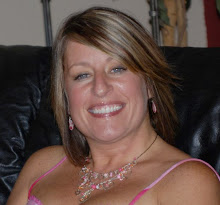
About the Book:
THERE’S MORE TO MOTHERHOOD THAN LOADS OF LAUNDRY
Biblical inspiration for some of motherhood’s greatest struggles
Life for mothers often feels like a balancing act. During these years, top priorities like raising godly children and tending your own spiritual health can seem sidelined by daily demands of diaper changes and mounting loads of laundry. It’s never quite as simple as it seems it would be. What’s a mom to do?
“I remember feeling panicky and desperate, overwhelmed and lost,” remembers author and speaker Jen Hatmaker about life as a new mother. “My romantic notion of motherhood was hijacked by such delights as breast pumps, sitz baths, and hemorrhoids. When I try to remember my deep thought life during that season, there is only a black hole of diapers, schedules and Elmo. There were so many elements of parenting I was unaware of when I signed up for it.”
The mother of three kids, now in their elementary and middle school years, Hatmaker learned many lessons along the way about motherhood. Whether it’s handling the stress of an ever-growing to-do list, feeling like you’ve lost your identity or just wishing God was closer during the times of teething and temper tantrums, Hatmaker found the answers in the teachings of Jesus.
She shares these insights in her book Out of the Spin Cycle: Devotions to Lighten Your Mother Load. This refreshing and encouraging collection of 40 devotions helps mothers connect the words and deeds of Jesus to the everyday struggles of their own lives. Along with her own laugh-out-loud tales of rearing small children, keen biblical wisdom and the eye of an understanding mom, Hatmaker helps shepherd mothers through the terrain of this new chapter in their lives through these powerful devotions.
Some of the topics that Hatmaker addresses throughout Out of the Spin Cycle include:
Understanding that it’s healthy to ask for help
Steering clear of the havoc of the “mom-comparison trap”
Making time to feed yourself spiritually
How to raise kids to reach an unsaved world
Little acts of discipling our children
Teaching our kids about Jesus and who he is
The kind of discipline kids need
The state of your marriage affects your children
Jen Hatmaker is the author of eight books and Bible studies, including A Modern Girl's Guide to Bible Study. With a heart for the women of her generation, she speaks at retreats and conferences around the country. Jen and her husband, Brandon, reside in Texas with their three children, and lead the ministry work at Austin New Church. Find out more at www.jenhatmaker.com.
Revell, a division of Baker Publishing Group, offers practical books that bring the Christian faith to everyday life. They publish resources from a variety of well-known brands and authors, including their partnership with MOPS (Mothers of Preschoolers) and Hungry Planet.
I was able to interview Jen! What a wonderful woman of God and mother! Let me share with you some of our questions....
What is the link between a mother’s spiritual health and her parenting?
It’s probably more accurate to ask, “What is the link between a mother’s spiritual health and everything else in the whole world?” Good grief! The more of a mess I am as a carrier of the Holy Spirit, the more of a mess I am as a mom, wife, friend, and – let me just say it – driver. (I have a road rage issue. Thank you for understanding.) I put it like this in Out of the Spin Cycle:
Scanning my bookshelves, I see about a billion books on parenting. I read eight books on babies before I ever gave birth to one. I’ve taken Lamaze classes, BabyWise classes (don’t start), parenting classes. I’ve joined Discussion Groups on raising tweens and facilitated book studies on balanced motherhood. I’ve downloaded helpful sermons and read countless websites. I’ve made lists and plans on how to manage summer / chores / homework / discipline / sleepovers / house rules.
And then there is real motherhood, which wrecks out half this stuff.
Because sometimes despite your careful strategizing and planning and reading and organizing, your two-year-old takes his diaper off in the middle of Target and runs up the cereal aisle while you scream after him like a mental patient. And sometimes after you’ve planned the perfect playdate, your daughter bites your new friend’s baby and flushes her phone down the toilet.
And sometimes, when your precious first-born son – the one you read all the baby books for and raised lovingly for ten years – opens a fresh, sassy mouth to you when you are already idling high, you accidentally tell him to get a shovel, go in the backyard, and dig his own grave. This, I don’t have to tell you, is behavior Ted Tripp would frown upon in “Shepherding a Child’s Heart.”
Not surprisingly, when I made that shockingly horrible statement to my son, I was exhausted, stretched thin, out of the Word, and in a prayer slump. I was running on spiritual fumes. My only intake was whiny children, mountains of laundry, a Suite Life of Zac and Cody marathon, and four hundred thousand pieces of correspondence from Elm Grove Elementary to attend to.
There is a simple explanation according to Jesus:
“For out of the overflow of the heart the mouth speaks. The good man brings good things out of the good stored up in him, and the evil man brings evil things out of the evil stored up in him.” (Matthew 12:34-35)
Motherhood is like a pitcher with a hole in the bottom; a constant drain on our energy, patience, and tolerance. Every mother who is telling the truth would attest to that. Add another layer like a child with autism, single motherhood, a financial crisis, or a crumbling marriage and it’s a wonder we have anything left to give.
Our only hope to speak with kindness, to lead with patience, to not threaten our children with homicide is to ensure our spiritual reserves are not bone dry. Moms are the middle of the flow chart; the arrows of exertion flow constantly out from us, but when no arrows of strength, grace, and peace are flowing in, the whole mechanism is in danger.
Goodness in = goodness out.
No goodness in = no goodness out.
This is the simplest truth, recognized by Jesus and every other parenting expert, but one most moms fail to take seriously. We’re too busy for the Word. We’re too tired to pray. We have too much going on for a small group. Under the banner of selflessness, we neglect our own spiritual health and sabotage the very service we wanted to render.
When God’s Word is flowing through my life, my baby can spill his fourth drink of the day, and I can say, “It’s just a drink.” When I’m dry, I could literally lie on the soggy floor and bawl over it. When Jesus has spoken peace into my life, I’m able to discipline consistently when my toddler pitches her third tantrum of the morning. If my pitcher is empty, I might lock myself in the bathroom and scream at the top of my lungs.
Out of the overflow of the heart the mouth speaks.
I mean, obviously, none of us struggle with empty spiritual reserves or Mommy Meltdowns or an anemic relationship with the Word. But our friends do. Let’s pray for them.
Why do you consider your role as mother as that of a servant, and how does that change the way you parent your kids?
By definition, a servant does the menial, excruciating, exhausting, behind-the-scenes work no one else has the energy for. Hello, motherhood. Something about being covered in the urine and vomit of little people while scrubbing toilets and singing “The Wheels on the Bus” for the seventeenth time that day reminds me that yes, indeed, I am a servant.
But Jesus transformed my concept of servanthood after a lovely season of young motherhood when, ahem, I didn’t feel like I was getting enough credit for running the marathon of parenting babies and toddlers everyday (hold your response, please and thank you). I wrote this in Out of the Spin Cycle:
I am one parenting stage ahead of most of you, dear hearts. I’m past naptimes, Boudreaux’s Butt Paste, and preschool waiting lists (“Please, please, please, please…someone get kicked out for biting!”) But the constant need meeting, the incessant talking, the relentless managing all comes back to me…every summer.
Here’s a slice of my life yesterday (add to the Kid Equation my three plus four or five extra neighbor kids at all times, everyday, starting at 8:30 a.m.):
“Can you tie my bow? Will you make me a smoothie? Caleb keeps pressing pause! I have nothing to do. I’m bleeding! Can I watch Weird Al on YouTube? Gavin locked me in the bathroom! I’m starving, Mom! We’re all starving, Mrs. Hatmaker! Will you change these batteries? Sydney won’t get out of my room! Where’s the flashlight? How old do I have to be to legally change my name? No other kids have to do chores! I don’t like to read anymore. When’s lunch? Watch, Mom! Are you watching?”
Moooooooooooooooooooom!!
Mom?
Mama?
I have not had an uninterrupted thought in twelve straight days. I am in the kitchen morning, noon, and night feeding all the children of Garlic Creek. By 9:45 a.m., I’d already broken up three fights. When I refused to make a third round of smoothies, Caleb replied, “This is the worst day of my life.” So when hubs got home at 5:30 and said, “You seem a little tense,” I seriously considered getting in his car (because it doesn’t appear an army of filthy badgers live in it) and driving to Canada.
If there is a more thankless, unglamorous job than motherhood, I haven’t seen it. I know you get it, girls. Something about being covered in other people’s urine and vomit while scrubbing toilets and hearing your precious cherub say “NO!” to you twelve hundred times a day makes moms bat-poop crazy sometimes. On super bad days, you might even say, “Is this really my life?” Some of you were in a boardroom or office just a couple of years ago, talking grown-up talk and wearing clean clothes. Motherhood comes with no status, no paycheck, no recognition, and very little credit.
“When Jesus was in the house, he asked them, ‘What were you arguing about on the road?’ But they kept quiet because on the way they had argued about who was the greatest.” (Busted.) “Sitting down, Jesus called the Twelve and said, ‘If anyone wants to be the first, he must be the very last, and the servant of all.’” (Mark 9: 33-35).
When I became a mom, “servant-hood” took on a whole new meaning. In our home, we decided I would be the one to change my daily life and stay at home with the babies. But when I took that as my identity, I developed a sense of entitlement and did a lot of waiting around for credit. I held the emotional position that I was doing everyone a favor. This top-down perspective tainted everything, because if I wasn’t perfectly appreciated, adequately recognized, or verbally praised (and what mom is??), then I became the wounded martyr who was always disgruntled.
Jesus transformed my idea of “being the greatest.” It’s not about receiving credit or being popular. It has nothing to do with position or power or getting our just due. Greatness does not come from recognition or the praises of others.
True greatness comes to us through the back door of servant-hood.
As mothers, this requires an emotional shift. We are not doing our husbands and children a favor. We are intentional servants; consciously deferring to the needs of those God entrusted to us. We make the near constant decision to cast off selfishness and resist entitlement. We deliberately choose ‘servant’ with all our faculties in place, exactly as Jesus did in all His strength and glory.
With His knack for perfect illustrations, Jesus elaborated like this:
“He took a little child and had him stand among them. Taking him in his arms, he said to them, ‘Whoever welcomes one of these little children in my name welcomes me; and whoever welcomes me does not welcome me but the one who sent me’” (Vs. 36-37).
When I choose servant instead of martyr, my children enjoy the security that they are welcomed in our home. They are not a thorn in my flesh, cutting into my personal time. They aren’t a nuisance, making me sigh with irritation all day. They are welcomed members of this family, loved and purposed. And when my children are welcomed, I have opened the very doors of heaven and invited God Himself into the laughter, chaos, and life of our home.
Now that is greatness.
However, to be fair, I did tell my kids yesterday that the reason we had children was so that we’d never have to pick up dog poop or unload the dishwasher again. So I’m still technically working on that servant thingy.
When we put our relationship with our children over our relationship with God, what threatens to happen?
First of all, we end up raising spoiled brats. (I’m kidding. Sort of. Not really.) We don’t mean to, but when we position our kids as the center of the universe – unfortunately taking God’s rightful place there – then our perspective gets all out of whack and we fail to put God in the center of our kids’ universe. They get the idea that the world revolves around their needs, their feelings, their moods, and let me tell you something Mamas: That is messed up. I know kids like this. You do too. We can’t stand them. (I mean that nicely.) When God is an afterthought for Mom, then God becomes optional for her kids. Of course He does; He’s just not that big of a deal, clearly.
This is to say nothing of the disaster this creates with the Mom. Her entire identity is wrapped up in her children, and that does precious little for her stability when her cherubs discover the phrase “I hate you!” and learn to throw temper tantrums. When there is no Jesus saying, “This is who you are. This is your value. You are loved. You are blessed,” then all we’re left with are our kids who sometimes say, “Instead of living in a family who has to ‘learn to make good choices,’ I WISH I WAS HOMELESS!!” (my Caleb, age six). This doesn’t bode well for the soul.
Plus, you’re disconnected from God.
Plus, you lose touch with your gifts.
Plus, your well runs dry.
Plus, you turn into a cranky, cranky girl.
With God solidly at the center of your universe, you can do this, Mama. Your perspective won’t be decimated by a toddler who decides he hates vegetables and doesn’t want to nap anymore. Every little thing that goes wrong won’t derail you. You won’t forget what you’re good at and what makes you happy. You’ll be able to dig deep and find a little somethin’-somethin’ at the end of the day for your hubby, God love him.
Why is it important for mothers to instill independence in their children, and what does that look like in your home?
This question comes to me at an excellent time: At the beginning of every summer, we reevaluate just exactly what our kids 1.) can, and 2.) should be doing on their own. They’ve had a whole year perfecting their current tasks and chores. (By using the word ‘perfecting’ I’m demonstrating my improvement on control issues and anal retentiveness. But if I may just confide this? My kids’ drawers and clothes used to look like a Gap display, so neat and perfect were the subcategorized stacks. Now? A total cluster.)
An excerpt from Spin Cycle:
It’s a confusing journey God puts moms on. We can barely be apart from our babies for twenty minutes at first. Eighteen years later, we’re supposed to send them into the world responsible and independent. The timeline between those two is about eight hundred bottles of Advil, fifty books on parenting, and eight seasons of Dr. Phil DVDs.
Putting our kids’ best interests first means accepting this fact: They’ll live most of their lives outside our homes. We are either equipping them for success or stunting their growth, sometimes irreparably. Keeping our kids glued to our side cripples their ability to become independent.
Here’s the trick: Those muscles of responsibility must be exercised all along, otherwise they atrophy and our kids can’t stand on their own two feet when it’s time. When we do everything for them, they never learn to do anything on their own. The real tragedy is they don’t even know they can.
Expect this to go over like a sack of dead kittens.
Co-dependence is the bent of the immature heart. Kids push back when we push them toward responsibility. Most don’t go willingly. In my house, it sounds like this: I can’t do that. I’m too little. Will you do it? I don’t know how. This is too hard. My arms are going to fall off. I don’t like growing up. I wish I was a baby again.
Have older kids? It might sound more like: I don’t feel like doing that. I’m not a slave. We do all the work. This house sucks. I’m never making my kids do all this! My friends’ parents pay for everything. (Or later: Can I move back in?)
This should look different depending on where you are on the timeline. Your two-year old cannot make her own dinner, but if you’re doing laundry for a sixteen-year-old, it’s time for a Come To Jesus Meeting. In our house, we live by two rules:
1. What can you and should you be doing on your own? I remember when my three kids (ages 3, 5, and 7 then) brought their dirty clothes downstairs to the laundry room, turned their clothes right side out, and separated them into colored piles. Their heads barely reached the top of the washing machine. My husband said, “It’s like our own little sweatshop.” Your kids can do more than both of you think. Regularly ask this question and reevaluate.
2. Everyone is in charge of his or her own stuff. This includes everything. Your shoes, backpacks, dirty clothes, clutter, bedroom, bathroom stuff, papers, towels, dirty dishes, trash, clean clothes . . . it’s not Mama’s problem. This includes my sweet husband. I was losing untold hours picking up things that didn’t belong to me. We have fifteen minutes of house recovery every night now. If it belongs to you, take care of it.
These two rules have changed my life.
The day to start pushing your kids toward independence is today, Mama. A one-year-old baby has things he should be doing on his own (beyond pooping and pulling out all your Tupperware). My kids are 8, 10, and 12, and they do all their own laundry, put away dishes, vacuum, clean bathrooms, scoop poop, windex, and dust. This summer, we’re adding mowing, menu planning and cooking, and gardening. Every year they can do more. Hopefully this means that by the time they leave us, they’ll know how to clean a house and won’t feed their new father-in-law canned ham when he comes to visit (guilty).
Next summer, I plan to teach my kids how to write my books and correspond with event planners while I read novels and sit on the porch with my girlfriends drinking sweet tea.
What is the danger of the mom-comparison trap?
Oh, nothing too bad, only abject unhappiness. So if you’re okay with that, then by all means, join the Mommy War. I don’t know who invented this little game, but I hate their guts. (Meant kindly.) And listen, doves, there is no winner here. You’re either chronically behind the curve, or you’re faking a perfect life to stay ahead of your competitors. And guess who feels the stress of all this rivalry? The little ones who are supposed to be the jewel in our tiaras.
Here is how I addressed this in Out of the Spin Cycle:
My friend Stephanie teaches first grade at an affluent school in Austin. During the first week of classes, a concerned father (read: crazy) cornered her and asked, “What are you doing to prepare my son for Yale?” Quick on her feet and not in the mood for intimidation, Stephanie answered, “Well, first I’m going to teach him to stop picking his nose and eating the plunder. Next up is walking in a straight line for more than five seconds. I’ll be ready to write a recommendation to Yale by the end of the year, I’m sure.”
Why do people add so much pressure onto an already challenging task? Never is this truer than with motherhood. Early childhood is this bizarre world where we hyperventilate because another mom enrolled her four-month old in Spanish classes, while assuring you that at eleven-months-old, the language acquisition window has certainly closed for your baby. Sorry for your luck.
Or a woman at the park casually asks you what waiting lists you have your two-week old on, while making it crystal clear that unless you expose her to Montessori curriculum (may also insert: Waldorf, High/Scope, Bank Street, Reggio-Emilia, Abeca, whatever), then you’re basically reserving her a spot in “Life Skills Class” in high school. This pressure, I’m pretty sure, is why the term, “It’s 5 o’ clock somewhere” was coined.
This is not a new phenomenon or restricted to the obnoxious world of motherhood, girls. In first century Judea, religious leaders – who overcomplicated the basic obedient life most tried to live – dictated the Jewish culture. In addition to the Law through Moses (which alone would make me consider a pill habit), they piled “extra teachings” on top of the billion rules the Jews already had to follow.
For instance, the rabbis expanded the simple prohibition of certain meat into an impossible system of kosher laws that made the Jews so paranoid, I bet they ate tree bark to be safe. The religious leaders transformed the Ten Commandments into such a complex ethical system of regulations and clauses, pretty much anything but breathing was somehow offensive.
All these extra teachings, additional rules, added standards, and supplementary laws were described by one term familiar to every Jew under the crushing weight of a Law that simply couldn’t be kept: “Yoke.” Each rabbi had his own unique yoke encompassing his interpretations and additional mandates. The rabbis’ yokes were well known, and you could determine who followed whom by which extra rules someone was keeping. Followers were expected to adhere to his yoke, complete with guilt, shame, condemnation, and failure.
Enter Jesus:
“Come to me, all you who are weary and burdened, and I will give you rest. Take my yoke upon you and learn from me, for I am gentle and humble in heart, and you will find rest for your souls. For my yoke is easy and my burden is light” (Matthew 11:28-30).
How meaningful those words were to the normal, exhausted, defeated Jew longing for relief. Do you see how this Rabbi was so unlike his contemporaries? This is our Savior. He takes the unnecessary pressure and pointless legalism either thrust on us or self-imposed, and He gently pushes those aside and says, “Come to me.”
There is a rest that only exists in Christ. In His embrace we can discern between what matters and what doesn’t; between what counts and what is simply optional; between what is essential to our holy task as mothers and what is just cultural pressure. Jesus always chooses the simple over the complicated, the humble over the elaborate.
Can you hear the spirit of His voice? He does not want you wasting away in Mom Guilt and condemnation. He hates that you wallow in doubt and succumb to unnecessary pressure as you raise your sweet babies. Come to Him. Come to His gentle ways and His humble approaches. Come to His rest and liberation. Come to that place where you don’t bend to every suggestion or bow to every criticism.
Come and rest.
His yoke is easier than the one you’re wearing.
My Review:
I highly recommend this book for MOMS but especially for new moms or it would be a great book for someone who has just found out they are pregnant to read during those months she is waiting to become a Momma! There is much wisdom in Jens book "Out of the Spin Cycle."
Thank you Jen for your time in answering these questions and for sharing your heart and wisdom with all of us Moms! Thank you Revell books for this complimentary copy! I received no compensation but was asked to share my humble opinion.
For more information, visit www.RevellBooks.com.
Out of the Spin Cycle by Jen Hatmaker
ISBN: 978-0-8007-3448-0
Available June 2010; $11.99















